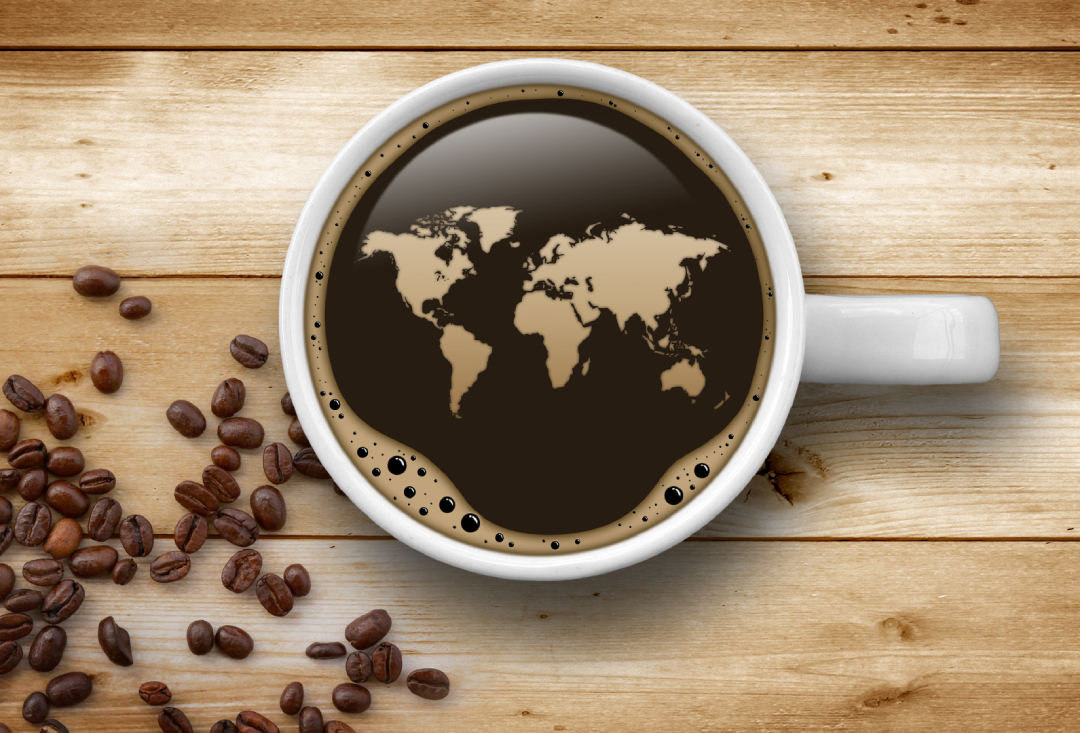
World's largest coffee producers
Coffee is a beverage that has become indispensable in the daily routine of many people around the world. The website statista.com, in 2021 the United States was the main importer of coffee with imports calculated at 6,920 billion USD, followed by Canada with 1,422 billion USD and Japan with 1,318 billion USD.
But if we are talking about the production... Which are the main producers of coffee consumed in the world?
In A page in the sun, we would like to share with you the 5 countries that produce the best coffee in the world.
Ethiopia
This country, belonging to the African continent, is considered "the cradle of coffee". Ethiopia is the origin of most of the genetic varieties of Arabica coffee and trades up to three varieties of coffee: Arabica, Robusta and Arabica, and Robusta.
Ethiopia is the fifth largest coffee-producing country in the world with an annual production of 450 thousand tons. 25% of the population of this African country lives directly or indirectly in the coffee industry.
Ethiopian coffee is grown in the higher altitude areas of the country, such as the Sidamo area, where there is greater humidity and the soil is more fertile. Because of this altitude, the harvest is later but results in a particularly delicate product, not too acidic and with an intense aroma.
Indonesia
From this country comes the one that, of all the coffees in the world, is considered to be "the most exotic". Its name is kopi luwak or civet coffee, which is said to be the best bean in the world... and one of the most expensive.
Its elaboration is most peculiar since the coffee plant produces red-colored fruits that a civet (a carnivorous mammal that lives in India, southern China, and Indonesia itself) ingests. However, the coffee bean that the fruits carry in their interior does not digest them, although it does give them more flavor thanks to the chemical modification produced by the enzymes, for which reason they are found whole in the excrement of the animal. Subsequently, the farmers collect, clean, and roast them, putting an end to the work necessary to produce the most expensive coffee in the world.
It is possible to pay up to 500 euros for a kilo of this coffee... But in addition to luxury coffee, Indonesia produces more than 600,000 tons. With this data, this Southeast Asian country has become the fourth-largest coffee producer on the planet.
Colombia
Colombia is probably one of the first countries that come to mind when we talk about coffee and its production. The truth is that there are a series of factors that differentiate the Colombian product from the rest, such as the tropical climate or manual harvesting.
Colombia is in third place, with a production of 810 thousand tons per year, being the example for other large producers thanks to the promotion of its denomination of origin Colombian Coffee is officially recognized in different territories such as the United States or the European Union itself through its already legendary icon.
Vietnam
When we talk about coffee, we probably do not think at first that this Asian country can be found in second place among the coffee-producing countries in the world. How can it be that Vietnam has become one of the kings of coffee? Well, we have to go back to post-war Vietnam, when, at the end of the 1970s and the beginning of the 1980s, agriculture was not producing any results. Then, in 1986, the Soviets decided to invest in coffee plantations.
Gradually, Vietnam recovered from the war and, according to BBC data, if in the 1990s 60% of the population lived below the poverty line, 30 years later this figure dropped to less than 10%.
Vietnam ranks second in world coffee production, with 1,683,000 tons.
Brazil
The annual production of coffee in Brazil (arabica and robusta) exceeds 3.5 million tons with more than 200,000 plantations, Brazil is by far the largest coffee producer in the world.
More than 35% of the coffee consumed in the world comes from this South American country, with the arabica and robusta varieties being the most common, although, given its immense production, a good part of the world's varieties and combinations of coffee come from Brazil.
In the 18th century, Brazil began to cultivate coffee in the north. Now around 300,000 coffee growers in Brazil produce around 40% of the world's coffee.
The Brazilian Coffee Institute (IBC) regulates and coordinates the industry in Brazil. Almost 1.8 million hectares are planted with coffee crops in Brazil. The Arabica variety represents 70% of coffee beans. Coffee accounts for 3% of export revenues.

